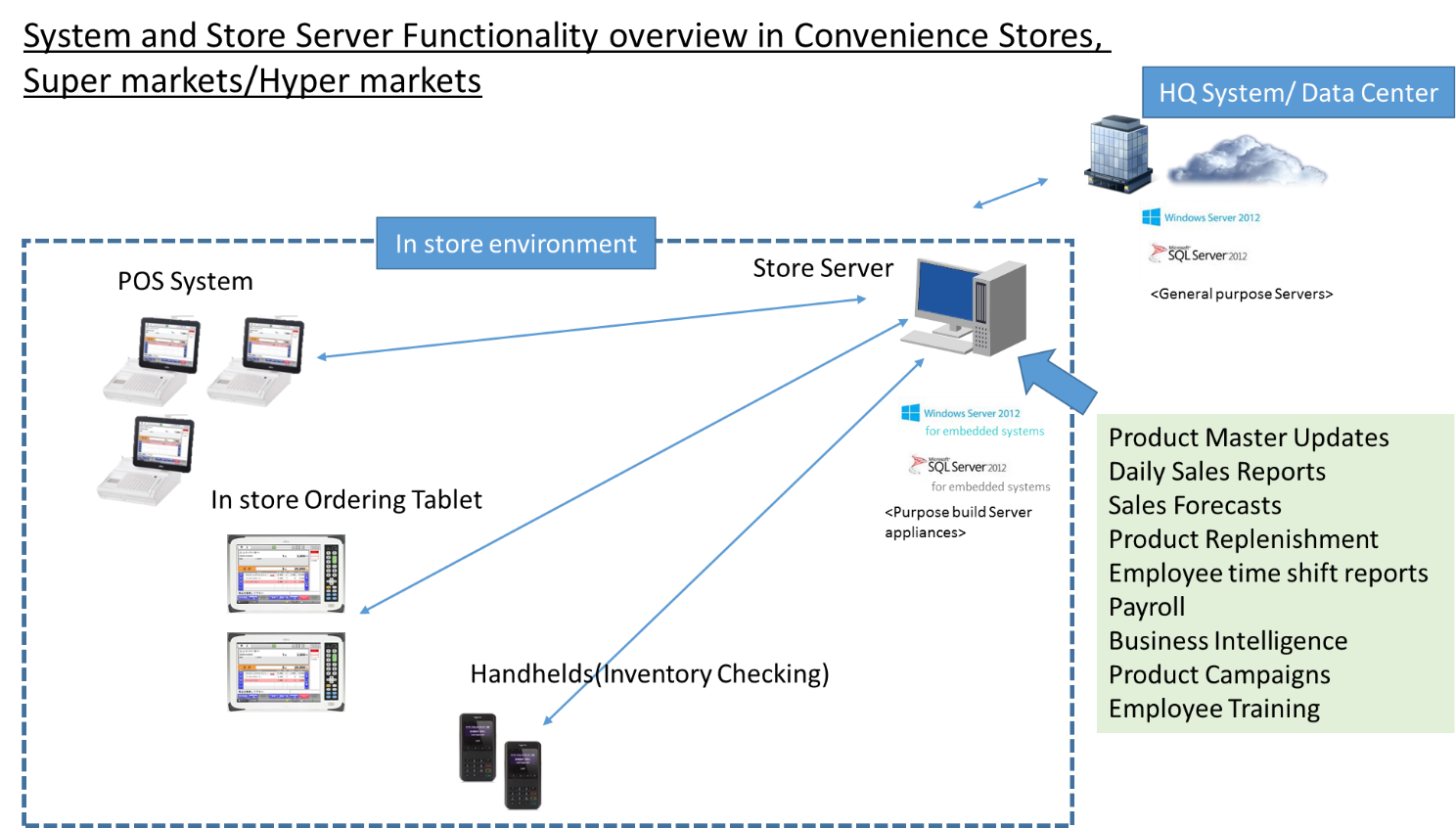Transforming retail with operational intelligence: Windows Server for Embedded Systems
Posted By Partha Srinivasan
Product Manager, Windows Embedded Server and SQL Products
OEM manufacturers use Windows Server for Embedded Systems to build server appliances —preinstalled hardware and software combined with the operating system — which make the configuration, deployment and management of industry devices simpler and faster. These server appliances are used in a number of industry devices, such as PACS machines in hospitals, store servers in retail stores and historian servers in manufacturing plants, and are a key enabler in developing intelligent systems architectures. In the coming weeks, I’ll be blogging about how the use of these server appliances adds tremendous value to enterprises in all of the major industries; in this blog, we will see how server appliances generate business intelligence when used in the retail industry as in-store servers.
To survive and thrive in an ultracompetitive business environment, retail companies need to create and deliver a differentiated customer experience, and maintain it consistently across all touch points. With so many aspects of the customer experience now enabled, driven and aided by technology, there are new opportunities for retail companies to effectively extend their brand across multiple remote locations. Retailers work towards building store systems that scalable, modular and purpose-built, and optimized to connect with their headquarters IT systems to be able to pull data in real time. And they look for cost-effective, high-performance solutions that generate reports that include actionable data to enable better business decisions, as well as better customer service.
In order to meet retail customers’ needs, OEMs can build systems with in-store server appliances. These appliances connect with industry devices such as handheld devices, point of sale (POS) terminals and ordering tablets that provide the ability to place orders, provide inventory information and collect sales data. This data is then aggregated into headquarters IT systems and datacenters, where heterogeneous data is processed and translated into actionable insights to improve both business intelligence as well as operational efficiency.
Here is a look at the architecture from a leading retail OEM that builds in-store servers, which illustrates the end-end data flow between the industry devices, server appliances and the servers that reside at headquarters.
Here, the store servers (also called store controllers) are used for various critical functions in the store, such as making product list updates and keeping the inventory list current for quick access while helping customers, without any worry of latency or network failures.
One of the key areas in which store servers have contributed to the wide success of in-store systems is in demand-chain management (DCM). The store servers are also used for improving operational efficiency through sales forecasts for timely product replenishment, better employee management and training, product campaigns and more. The headquarters receives this rich operational and transactional data as it is aggregated using general-purpose servers, allowing for more complex business intelligence, which can drive efficiencies, both in the business and in partner relationships. Further, because point- of-sale (POS) store systems are now considered mission-critical for retailers, speed and reliability are more important than ever; if the POS goes down, the retailers lose sales—and customers. Further, capabilities such as fail-over functionality and flexible storage-management options are key, as is a long lifecycle, which allows retail OEMs and customers to build store systems that last.
To read more about how intelligent systems can transform the retail enterprise, visit our retail page; more about Windows Server for Embedded Systems is here; and read about the release of our newest platform, Windows Server 2012 R2 for Embedded Systems, here.
1. Windows Server 2012 R2 for Embedded Systems is binary identical to the Windows Server 2012 R2
